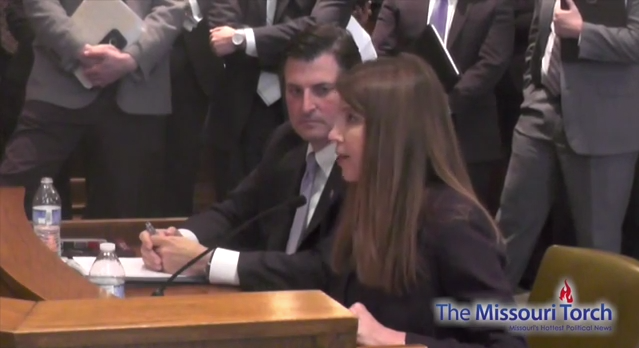Where are all our SCHOOL TEACHERS? — Teacher Bullied By Other Teachers Over Common Core
Has anybody heard any comments from school teachers in regards to Common Core? Has anybody even heard a peep from any teacher – public, private, Catholic or homeschooler? Has the silence that all school teachers strive for in their classrooms actually engulfed them as well?
Back in August – right before the school year was to begin – school teachers from all over the state of Florida were the most vocal – numbers of them coming to me complaining about this “new Common Core thing” and asking me what could I do with my bold activism to “make it go away”. Many of these teachers were up in arms about this unethical set of standards that has taken the nation by storm and some went as far as saying that they were thinking about “boycotting” their respective schools in order to send out a message.
Well, 8 months have gone by; the school year is coming to a close; Common Core is finishing out its Phase III; and it seems like every single one of those very concerned teachers has either “taken the 5th”; has gotten a $50,000.00 raise to keep quiet; or simply just threw in the towel and joined the rest of the herd. Manipulation and deception at its greatest. Teachers are the backbone and foundation of our education system in our country and I personally have the utmost respect for ALL teachers – beginning with my own sister, Ana, who has taught in Miami for over 30 years. A phenomenal teacher. An even better sister…a die-hard Catholic to the bone…my “teacher of the year”.
But, even she appears to have her hands tied, duct tape over her mouth. The “Curse of Common Core” has hit her as well as all of those other teachers who threatened to either boycott their school, raise hell with their school principal, or just quit altogether. Slowly but surely, teachers have been lulled into thinking that this new system is going to save the world and since they do not want to lose their jobs – they just go with the flow and try not to create any waves. It has been a very calculated and stealth attack on our education system, going back to “No Child Left Behind” and “Race to the Top”, and it all seems to be falling right into place.
The Common Core system is what “magically” evolved from those two former programs and has now taken over our beloved schools; teachers have been silenced, and just like this fiasco of Obamacare – which keeps moving the field goal posts every other day to accommodate President Obama in order to make him look good – the Common Core Monopoly Game has its own set of rules & regulations. And, you do not collect $200.00 when you pass Go…In the case of our school teachers, they appear to be spending most of their time in “jail”.
And, as long as the Federal Government has control over our beloved teachers and schools – those field goal posts don’t even need to be put up. No contest. Game over. President Obama, Bill Gates, Planned Parenthood, Agenda 21, the United Nations and every single crooked politician and state leader who has pushed for this “socialist disease” (including our own Jeb Bush) – call the shots, make up their own rules, and manipulate the education system to their personal liking…and our beloved children – the future of our country – are the ones who suffer the most…And, that is why I put my neck on the line every single day of the year.
In order to make a difference in our country, state, community, school system and church, one must put his or her neck on the line and be bold about his or her beliefs. That is one reason why I have personally fought Common Core tooth & nail from the very moment that I heard that the Catholic schools were going to implement “the curse” in their schools. That’s when this Christian on a Mission went to work – and I have not stopped since August 1st – and will not stop until we reverse the curse…at least in our Catholic schools in the state of Florida. That is my bold commitment to my Catholic Faith and what I firmly believe GOD has called me to do. Others around the country have fought it as well and even gone as far as taking it to court.
Susan Kimball testified that she suffered from bullying and intimidation from school administrators and fellow teachers because she opposes Common Core. In her testimony, she actually breaks down emotionally while standing up for her beloved students, as she explains to the panel how Common Core has totally crushed her spirit and has left her almost helpless. It takes guts to do what Mrs. Kimball did and I wonder how many other school teachers across this country have experienced the same thing this courageous and compassionate teacher has had to endure. How many teachers have the intestinal fortitude to stand up for what is right and take the stand for their beloved school children like this terrific teacher did? Where are all of those school teachers who came up to me in August ranting and raving about Common Core and how bad it was? Now is your time to stand up and be “bold” about your faith and your beliefs and try to “reverse the curse” and save this great country that we used to refer to as “Home of the Brave/ Land of the Free”.
[youtube]http://youtu.be/JLc_hqVoUuc[/youtube]
“Bullying” – a term we have heard a million times over the past few years. At the school level, it normally occurs when a bigger kid picks on a smaller kid. Or, when a group of kids gang up one single kid. Or, it can occur via the computer or cell phone, known as “cyber-bullying”, where a kid is threatened via the internet or even text messaging. School administrators have placed a great deal of importance on this topic because it is a very serious one. But, what happens when a “school teacher” is bullied, as in the case of Susan Kimball? And, what happens when it is not a bigger kid or a group of kids picking on her? What happens when it is an unconstitutional & unethical set of education standards we refer to as the “Curse of Common Core” who is bullying this teacher? Who does one go to then?
Going to the Federal Government to get help from this Common Core bullying is like a helpless Jew in a Nazi German camp going to Hitler and asking the Fuhrer for a pillow to sleep on because the floor is too uncomfortable.

















